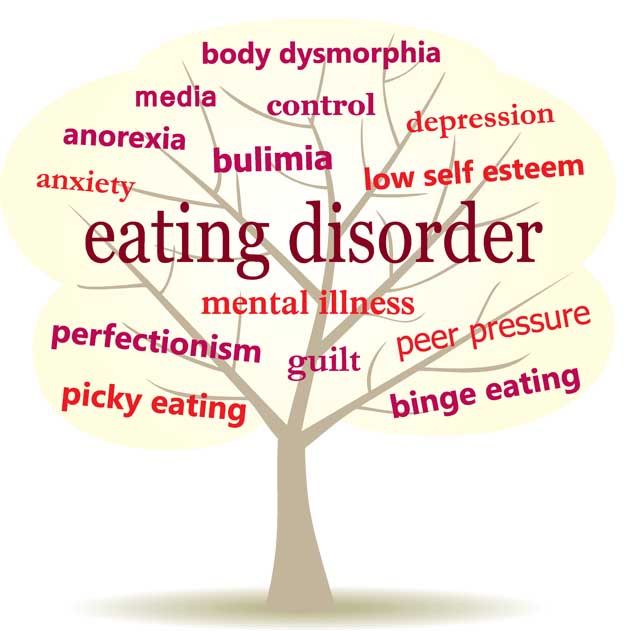Disordered Eating?
Jul 16, 2019 • 12 views

Eating Disorders can be described as illnesses that are characterized by irregular eating habits and severe concern about body weight or shape.
Eating disturbances may include inadequate or excessive food intake which can lead to an ultimate damage of an individual’s well-being. The most common forms of eating disorders include Anorexia Nervosa, Bulimia Nervosa and Binge Eating Disorder and can affect both females and males.
Most eating disorders involve focusing too much on your body weight, body shape and food, leading to unusual and dangerous eating behaviours. These behaviours can very significantly impact your body's ability to feed on appropriate nutrition. Eating disorders can harm heart, digestive system, bones, and teeth and mouth, and lead to other diseases.
Eating disorders often develop in the teens and young adults, although they can develop at other ages too. With treatment, you can return to healthier eating habits and sometimes get rid of serious complications caused by the eating disorder.
Anorexia nervosa
It is often simply called anorexia. It is a life-threatening eating disorder which is characterized by an abnormally low body weight and intense fear of gaining weight. People with this use extreme efforts to control their weight causing significant interference with their health and life activities.
Bulimia nervosa
It is commonly called bulimia which is a serious and life-threatening eating disorder. In this, people have episodes of bingeing and purging and a lack of control over their eating. Many people with bulimia also restrict their eating during the day, which often leads to more binge eating and purging. During these episodes, one tends to eat a large amount of food in a short time, and then try to get rid of the extra calories in an unhealthy way.
Binge-eating disorder
When you have binge-eating disorder, you regularly eat too much food and feel a lack of control over your eating. You may eat quickly or eat more food, even when you are not hungry and you may continue eating for longer time even after you are too much full. After a binge, you may feel disgusted or ashamed or develop a feeling of guilt by the amount of food you have eaten.
Rumination disorder
Rumination disorder is repeatedly and persistently regurgitating food after eating, but it's not due to a medical condition or another eating disorders such as anorexia, bulimia or binge-eating disorder. Food is brought back into the mouth without nausea. Regurgitation may not be intentional. Sometimes regurgitated food is rechewed and reswallowed or may be spit out. The disorder may result in malnutrition if the food is spit out.
Avoidant/restrictive food intake disorder
This disorder is characterized by failing to meet minimum daily nutritional requirements because you do not develop any interest in eating and tend to avoid food with certain colour, texture, smell or taste or you are too much concerned about the consequences of eating, such as fear of getting choked.
TREATMENT
People with eating disorders are at higher risk for suicide and medical complications. They can often have other mental disorders. Complete recovery is possible.
Treatment may include one or more of the following:
·Individual group and/or family psychotherapy
·Medical care and monitoring
·Nutritional counselling.
